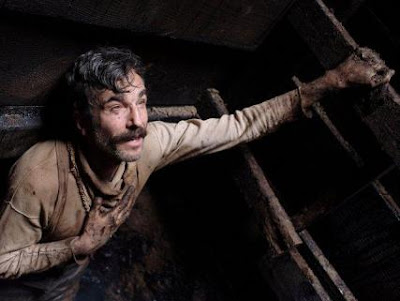
by Miné Salkin | Oct 29, 2008 | Uncategorized
Guest speaker Stephen Lewis told students that “this planet is doomed” at a conference advocating Students for Sustainability this afternoon at the University of British Columbia.
The Nobel-Prize winning diplomat, politician, and broadcaster said that all international and other government actions towards reducing greenhouse gas emissions, such as the 1992 World Summit Conference were ways of “getting away with the appearance of movement” in regards to the environmental crisis.
Lewis capitalized on the ineffectuality of the current Conservative government in Canada, and the capitalist framework that developed nations strive to adhere to while ignoring the tell-tale apocalyptic signs of a world in peril. He said the Harper government is one whose “agenda for the future abandoned the environment,” and that it focuses attention on propping up oil and gas companies who further the environmental decline by protecting corporate interests.

Lewis is very concerned for the environment
Created by the Sierra Youth Coalition and the David Suzuki Foundation, The Students for Sustainability Tour began last month to educate post-secondary students across the country on how to decrease their carbon footprint. Their message is a tough one: some of the environmental damage that has already been done is irreversible.
Quoting from George Monbiot’s book Heat, Lewis said that something must be done for the environment, otherwise we are doomed to an apocalyptic reality of irrevocable environmental and social damage that will happen within the next 40 years. “We have already seen 150,000 excess deaths due to climate change alone,” he said.
Two sides of the same coin
Motivational speaker Severin Suzuki said that the current global economic crisis is indicative of an old-world capitalist mentality that reflects its own failings, and that the reality of climate change is an impetus for both environmental and economic action.
“This crisis is an opportunity to understand how our economic system of deregulation and globalization is unsustainable. This economic system has evolved in a way that has resulted in the exploitation and destruction of the environment,” she said.

Suzuki walks the stage
Suzuki says that we must think of new ways to create an environmentally-friendly economic system that favors the sustainability niche in the 21st century. “The environmental momentum should not be broken by an economic crisis,” she said.
Cow problem
Unsustainable industries are a large culprit in both the economic crisis and the intensification of climate change, triathlete and author of The Thrive Diet Brendan Brazier explained.
Brazier points to statistics that indicate that the cattle industry is highly unsustainable. While it takes anywhere from 2,000 to 8,000 gallons of water to produce 1 lb of beef, other protein-rich plants such as hemp only require 100 gallons to produce 1 lb of hemp seed, and are resistant to disease and don’t require pesticides.
The UN published a report in 2006 claiming that livestock animals contribute 38% more greenhouse gasses than all of our transportation combined, and are dooming us all in the environmental and economic sense.
According to Brazier, 70% of the food grown around the world is for animal feed, and it requires 9-16 lbs of grain to get 1 lb of beef. “We are creating more CO2 than we drive,” Brazier said.
Lewis ended the conference with a fearful, motivational tone. “If we don’t move with supernatural rapidity, I think there’s going to be some kind of cataclysm between 2030 and 2050,” he said.

by Miné Salkin | Apr 6, 2008 | film stripped

Paul Thomas Anderson’s newest film is a gritty tale of jealousy, greed and revenge, set at the turn of the twentieth century when the American oil industry was just beginning.
Daniel Day-Lewis plays Daniel Plainview, a self-made man who starts his own drilling company and eventually attains God-like status in the infancy of American capitalism. Plainview is a loosely based adaptation of oil tycoon Edward Doheny, and this oil man is extremely reminiscent of Count Dracula. Anderson creates a character with his heart set on a misanthropic vision – to escape the falsity of other human beings who only exist to stand in his way.
Indeed, Day-Lewis’ character has an Iago-like moral imperative and only seeks to gratify his selfish designs, abandoning his adopted son in pursuit of wealth. It recalls to mind the kind of men who make up the world; only with more blood and oil saturating this industrial, harsh aesthetic.

Paul Dano (Little Miss Sunshine) plays Eli Sunday, an evangelist priest whose family’s land is sold in order to facilitate more oil drilling and greedy profits. Dano represents the naive, predictable idealism of the most flamboyant sect of Christianity which ultimately fails in its pursuit to offer salvation to the ravenous souls lost in the oily abyss of the drilling plains. It’s a classic tale of gluttony and human vice versus the powers of the good; and predictably enough, the thirst for oil conquers all.
Some other of Anderson’s films include Magnolia (1999), Punch-Drunk Love (2002) and Boogie Nights (1997), and share the same compelling insights on the darker sides of human nature.
 Paul Thomas Anderson’s newest film is a gritty tale of jealousy, greed and revenge, set at the turn of the twentieth century when the American oil industry was just beginning.
Paul Thomas Anderson’s newest film is a gritty tale of jealousy, greed and revenge, set at the turn of the twentieth century when the American oil industry was just beginning.



